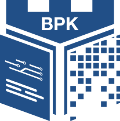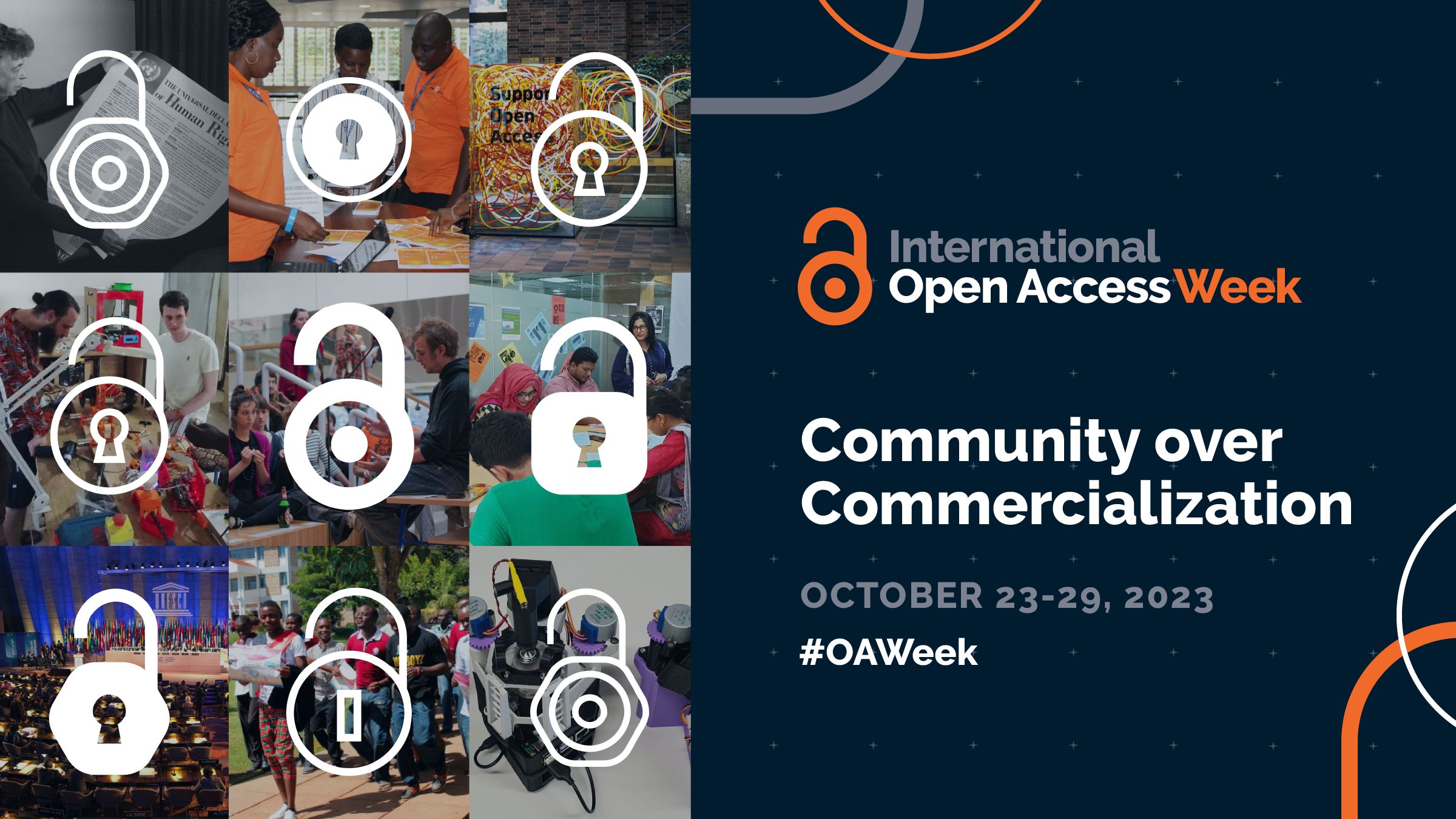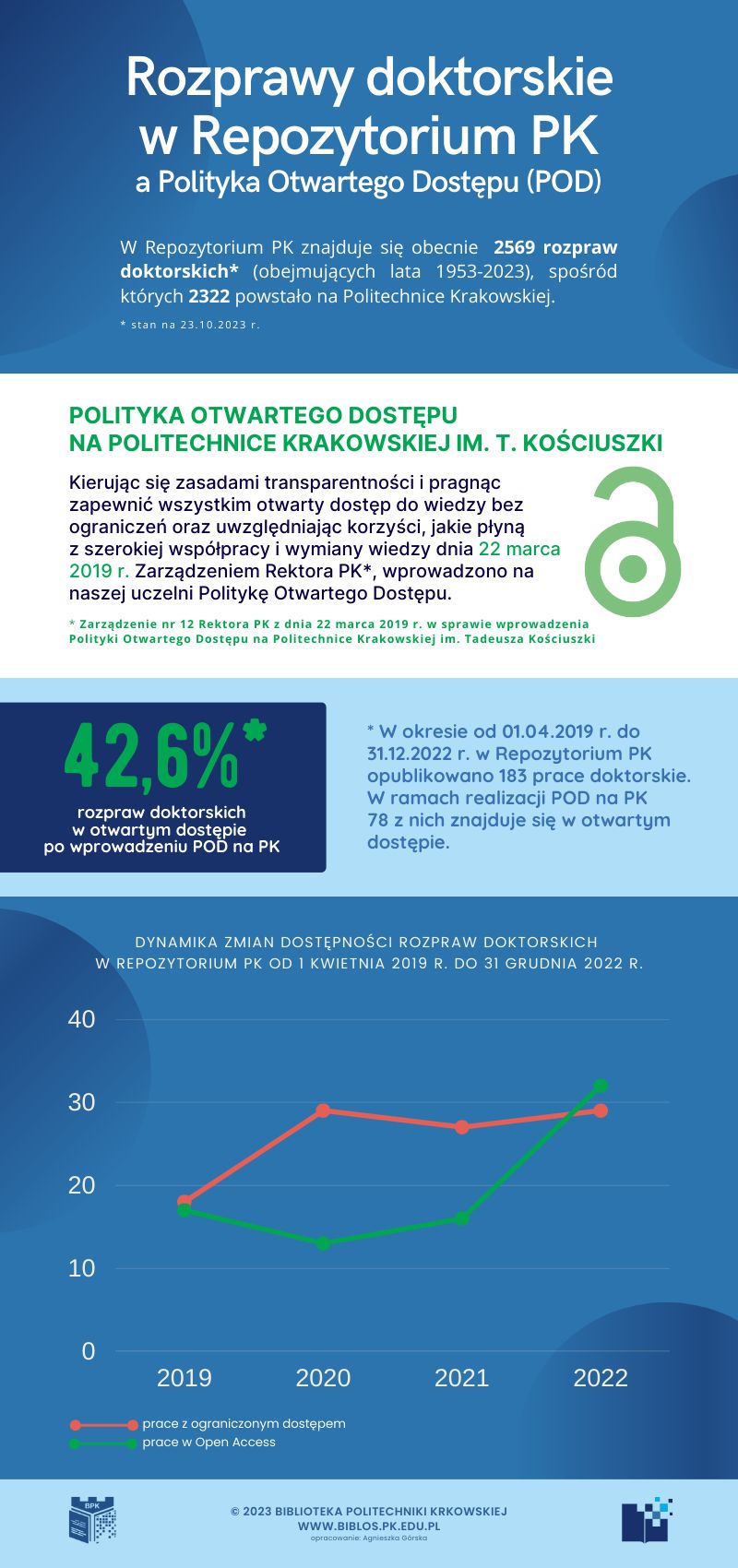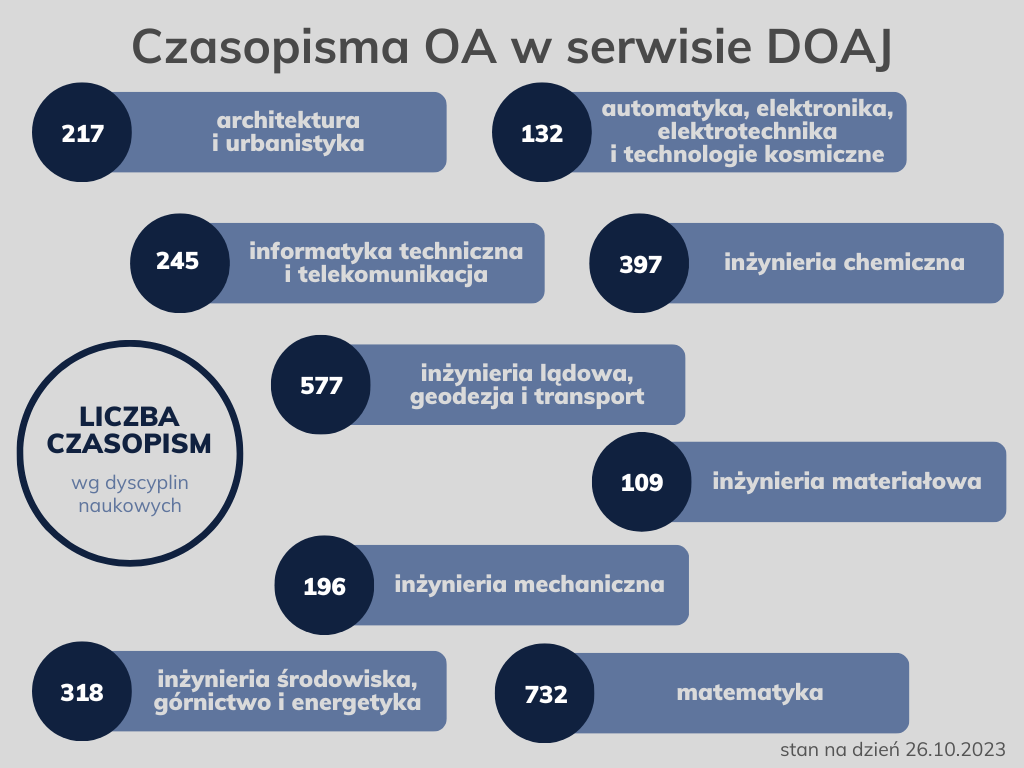Open Access Week
Open Access Week, 23-29, Oct., 2023
„Community over Commercialization”
UNESCO's recommendations on Open Science, adopted by 193 member states, emphasize the need to prioritize community over commercialization. The theme for this year's International Open Access Week opens a discussion on preventing unfair profiteering from publicly funded scientific activities. It indicates support for open publishing models and prompts analysis of which approaches to open science prioritize the welfare of society and the academic community.
This year's theme, chosen by the Open Access Week Advisory Committee, provides an opportunity to raise awareness about the importance of community control of knowledge-sharing systems.
Cracow University of Technology has been implementing solutions to support Open Science for years, starting with the introduction of an Open Access Policy, the establishment of a Repository of the CUT (new window) (green publishing path) and a RODBUK Cracow Open Research Data Repository (new window), as well as enabling academics to take advantage of open publishing programmes funded under national licences.

Throughout the Week, we invite you to follow our website, Facebook and Twitter profiles, where we will present new Open Access issues every day.
Information Services Department offered consultations to academics on:
• issues related to Open Access and Open Science,
• Cracow University of Technology's openness policy,
• open publishing,
• depositing publications in the CUT Repository,
• depositing open research data in the RODBUK.
Open Access is the making of publicly funded scientific publications and research results available in digital form on the Internet for free use by researchers, students, businesses and the general public.
Models of open publishing:
Diamond Open Access – open access to journal content for all interested parties, with the business model being that the journal does not charge APC (Article Processing Charge) author fees and editorial costs are paid by institutions, universities, research centers, museums, libraries or scientific societies associated with the journal,
Gold Open Access – open access for all interested parties; the publisher provides free access to all articles on the journal's website, but APC (Article Processing Charges) must be paid by the author or funding institution,
Green Open Access – open access within a repository, where the author himself posts the preprint or postprint of his publication (according to the agreement with the publisher),
Since the beginning of their scientific careers, doctoral students have noticed the importance of open access to scientific publications, which is why the number of PhD theses in the CUT Repository (new window) (green access route) is dynamically increasing.
RODBUK - Cracow Open Research Data Repository
We recommend the RODBUK platform for depositing research datasets, which is publicly accessible and in line with the policy of open science. It allows academics, postdocs and students carrying out research projects to deposit, archive and share data from different disciplines and in different formats.
RODBUK was created as a collaboration of six Cracow's universities: Jagiellonian University, AGH University of Krakow, Cracow University of Technology, Krakow University of Economics, University of the National Education Commission, Krakow, University of Physical Education in Krakow.
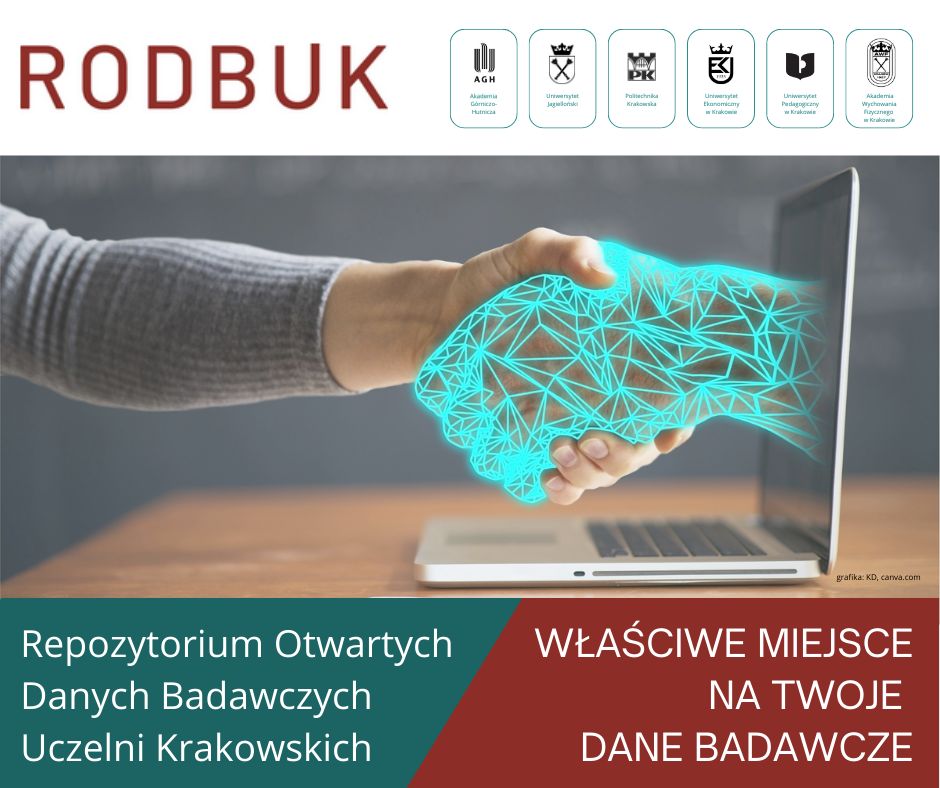
This is the first repository in Poland to adopt a distributed operating model. Each participating university administers its own instance of the system, and all research data resources are visible to users in a common https://rodbuk.pl (new window) aggregator.
DOAJ (Directory Open Access Journals)(new window)
It allows users to quickly find open access journals from around the world.
This year the service celebrates its 20th anniversary, based on the work of volunteers from more than 36 countries.
The DOAJ lists more than 20,000 journals and nearly 9.5 million articles. Any author wishing to publish an article in an open access journal can get information at DOAJ about:
- initial date from when the title is published in the OA model,
- publishing language,
- fees, or lack thereof, during the publishing process, e.g., APC,
- the type of open licence used, e.g. CC BY, CC BY SA,
- copyright and publishing rights,
- review model (including anonymous, editorial, peer review)
- the waiting period for the article to be published (period given in weeks).
When searching, it is a good idea to check the options:
- “Without fees” – narrows the results only to titles that do not charge any additional fees to the author/institution,
- “With a DOAJ Seal” – narrows the results to journal titles that demonstrate best practices in open access publishing (only 10% of all journals),
- “Author retains all rights” – narrows the results to only those journals in which the author has unlimited copyright and publishing rights.
Free licences
Academics of Cracow University of Technology often wonder which licences to publish under, what are the abbreviations of CC-BY, CC-BY-SA, or public domain mean. We recommend using the tools created to help understand the subject of free licences:
Licence Chooser (new window) – a test version of the tool that selects step-by-step licences for the selected work (questionnaire of 7 short questions).
Legal assistance (new window) – a service created by the Open Science Platform team that explains legal complexities from the point of view of the author, publisher, scientific unit and funding body. Information has been prepared for authors in four thematic modules:
- types of open access,
- transfer of rights,
- exploitation of others' achievements,
- collective and joint publications.
Journal Checker Tool (new window) – a test version of the service, which allows authors, publishing under the grant they received, to check the compliance of scientific journals and publishing platforms with Plan S. After selecting the journal (title or ISSN), funding entity (e.g., NCN, Horizon), and Cracow University of Technology (name: Cracow University of Technology, Poland or ROR: 00pdej676), you will receive information about compliance with the requirements of Plan S. You will see if a journal offers an open access publication path under the CC BY (or equivalent) licence, if it is embargo-free, and if authors have the option to retain copyright.
It's also worth reading about predatory publishers (new window) who take advantage of golden open access by charging an APC fee without caring about the content of the journal they publish.
Non-commercial platforms to support researchers:
Library of Science (new window) – providing an access to full-text scientific publications from the five Polish databases:
- AGRO – articles in the field of agricultural science and life sciences,
- BazTech (new window) – articles in engineering and technical sciences, as well as natural sciences – a database co-created by the CUT Library,
- CEJSH – articles on social sciences and humanities,
- DML-PL – articles in the field of engineering and technical sciences,
- PSJD – articles in the field of science and life sciences and the area of medical and health sciences.
Open Research Europe (new window) – open publishing platform to access publications from Horizon 2020, Horizon Europe and/or Euratom funding in all thematic areas.
European Open Science Cloud (EOSC) (new window) – an initiative to create a virtual environment that meets all the tenets of Open Science. The EOSC is intended to provide easy and transparent access not only to publications and scientific data, but also to advanced tools and resources for storing, sharing, processing and managing them. The RODBUK Repository is indexed in the EOSC. The RODBUK's profile (new window).
